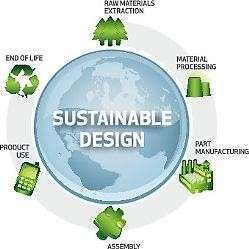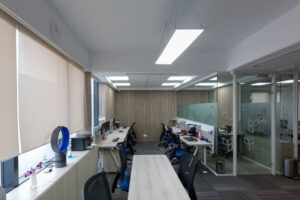
Battery technology has already transformed our lives. In the near future, batteries will have an even greater impact on Earth and humanity. This research aims to study the environmental impact of battery manufacturing and industries, recent trends, sustainability, and future possibilities.
Our primary goal is to gather information about manufacturing procedures from different battery industries in Bangladesh. The article also discusses ways to improve battery technology through recycling, alternatives, and proper handling, use, and disposal. We chose to focus on lead-acid batteries as an example. While lead-acid batteries are commonly used and recycled in many countries. Recycling can be dangerous if not done correctly due to the presence of sulfuric acid and plastic. These technical guidelines are intended to assist manufacturers in managing their used lead-acid battery waste.
Major Key Players & Brands
| Manufacturers | Major Brands |
| Rahimafrooz | Globatt
Rahimafrooz
|
| Hamko | |
| Rimso | |
Sustainability
Everything we require for our continued existence and wider interests rely on nature in one way or another. Sustainability establishes and maintains the circumstances necessary for productive coexistence between people and nature. This enables meeting the social, economic, and other needs of both the present and the next generations. To ensure that we have and will continue to have the water, materials, and resources necessary to safeguard both human health and the environment, sustainability is crucial. Here is a diagram of a typical sustainable design cycle. Any manufacturing process should be designed with sustainable or green solutions, from the extraction of raw materials to the finished product.

Recycling
The recycling process is very essential for sustainable development that provides rational uses for scarce, or potentially scarce, natural resources such as lead. Some potential advantages of the recycling process are as follows:
- Extension of natural resources lifetime – although there are undiscovered ore deposits all over the world, they are all ultimately finite and this limit is linked to its usage rate. Therefore, recycling processes extend the lifetime of these deposits.
- Reduced monetary costs – Secondary materials are beneficial to the monetary economy as they are cheaper to process than primary minerals, reduce dependence on imports, lower equipment investment costs, and minimize waste production, particularly primary extraction waste.
- Energy conservation – since few metals occur in nature as readily usable forms, the recycling processes allow the production of metals with about 25% or less of the energy used in the primary processes. Furthermore, most of the primary metal processes require energy-expensive procedures. Which usually depend on fossil fuels, as in furnaces, for example, the recycling processes provide means of pollution reduction.
- Toxicity toward the environment and human health – it is well known the consequences of lead exposure, be it human or environmental exposure. Thus, it is reasonable to think that a lack of a lead recycling system would increase dramatically. The risk of exposure since the lead waste would have to have environmentally unsound destinations.
- Large recyclability – the fact that lead has a low melting point and is easily refined from scrap increases its recyclability. i.e. the relatively technical ease or feasibility of lead isolation from scrap and re-introduction into the raw material stream.
- Large market – Lead enjoys a large market and, depending on the country of course, a reasonably well-organized collection system of up to 96% from one dominant product in the battery industries which has a short and predictable lifetime: the SLI battery.
For more details, please Contact Us.
or, WhatsApp Us: +880 1713222363



